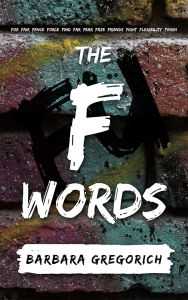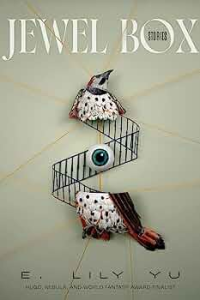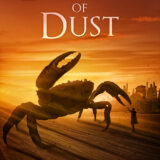
When I was invited to the American Library Association’s annual conference in Chicago, I felt dismay. So much of their schedule was focused on book bans and censorship. It’s not like I didn’t expect it. I follow the news. I know how bad things are and what’s happening in Texas, Florida, South Carolina, and elsewhere. Personally, I have writer friends who have been burned by these flames. Still, I felt clouds gather overhead. A week of hearing about how librarians are besieged and in retreat is not something to look forward to. More, as a science fiction author and reader, I am well-versed in dystopia and fear its creep. Worse, as a Jew, I know what happens when we burn history and deny voices.
That said, I was determined to lend my voice, my face, and stand with librarians, authors, and ideas because free people read freely.
Over the span of the conference, I attended the Rally for the Right to Read, and three other panels that featured authors like Amanda Gorman who recalled her book banning hitting her like “a knife to the gut,” Ibram Kendi who spoke eloquently about cyclic nature of how suppression of knowledge has been used throughout history, and Erewhon author E. Lily Yu who spoke about the pressure on publishers and authors even before the book is placed on a shelf.
“There’s a kind of mob mentality and mob harassment across publishing,” Yu says, “You see publishers canceling their authors’ contracts, readers threatening writers, writers withdrawing their books.”
 It’s happening on all levels. Mostly, in the news, we hear about what’s happening to the biggest publishers and best-known titles, but small presses with fewer resources have found themselves under the knife, too. This year, City of Light Publishing found one of its YA titles, The F Words, blocked by Amazon for “obfuscated profanity.” This, despite the fact that, according to publisher Marti Gorman, the F–Words in her title were “friend, foe, and freedom.” After a fight, it looks like Amazon has relented and the F Words are available on the site, but Gorman says the war is not over. The book is still being judged by its cover.
It’s happening on all levels. Mostly, in the news, we hear about what’s happening to the biggest publishers and best-known titles, but small presses with fewer resources have found themselves under the knife, too. This year, City of Light Publishing found one of its YA titles, The F Words, blocked by Amazon for “obfuscated profanity.” This, despite the fact that, according to publisher Marti Gorman, the F–Words in her title were “friend, foe, and freedom.” After a fight, it looks like Amazon has relented and the F Words are available on the site, but Gorman says the war is not over. The book is still being judged by its cover.
“It’s giving librarians great pause before they put it on the shelves because they fear it will be banned.”
Yu puts much of the onus for the harassment and story suppression momentum on vehicles like Twitter and Tik Tok, explaining that they can sometimes facilitate the mobilization of mobs on very little evidence. That these “bad faith” misinterpretations have sometimes created a negative relationship between readers and authors and that this pressure is suppressing the creation of “risky, brave, courageous work…” the kind of work Yu feels we need today. This effort when taken to PTAs, library boards, and the court, ALA lawyers describe as unconstitutional prior restraint and viewpoint discrimination. In their executive meetings, ALA members rejected outside censorship as an “ordinary part of weeding” and insist that adults and young people have First Amendment Rights and rights to use the library. A more nefarious effort is the establishment of segregated sections for controversial books. ALA lawyers at the conference reported instances in which some controversial books have been removed from shelves and placed in separate areas (often not on the library floor) thus creating a shadow ban. The idea here is simple. If you don’t see it you won’t borrow it.
This is a practice that the ALA says it is resisting.
 And in court, they have scored victories. In fact, it was heartening to hear in ALA panels how often libraries have won and how often these bans or banning efforts have been reversed. Just this year, book bans have been reversed in Llano County, Pinellas County, Florida, and elsewhere. More, Illinois just passed a law banning book bans. But maybe even better than that was learning of the student-level advocacy; like the banned book clubs that are forming in high schools around the country… including the deep south. Still, victories in court do not mean the threat is ending or even ebbing. Too many books are being pulled from the shelves and teachers and librarians are often left adrift and uncertain how to “follow the law” in states such as Florida.
And in court, they have scored victories. In fact, it was heartening to hear in ALA panels how often libraries have won and how often these bans or banning efforts have been reversed. Just this year, book bans have been reversed in Llano County, Pinellas County, Florida, and elsewhere. More, Illinois just passed a law banning book bans. But maybe even better than that was learning of the student-level advocacy; like the banned book clubs that are forming in high schools around the country… including the deep south. Still, victories in court do not mean the threat is ending or even ebbing. Too many books are being pulled from the shelves and teachers and librarians are often left adrift and uncertain how to “follow the law” in states such as Florida.
Publishers, too, find themselves in this fight. Some are throwing punches while others duck the fight, canceling contracts or changing what topics they want to take on. City of Lights’ Gorman insists that incidents like this will not impact her future decisions.
“I welcome controversial books and I think we have to make people think. And if books don’t give people pause for thought and if they don’t make a difference, I can’t be bothered publishing it.”
So, what can we do as lovers of words, ideas, science, story, and debate? Well, the first answer is a lot. The easiest is to borrow or buy a threatened book. Books that have no history of loans or sales get culled from shelves. Books that receive a lot of love stay and may find their numbers multiply. One librarian I spoke with at ALA indicated their system employed a generous three-year stay of execution for books before they are excised. Booksellers are often far less generous. A book can disappear from a bookstore after only a few weeks. What happens at this level then impacts how publishers choose their books. Publishers who see black and not red will take more chances. After all, the bottom line counts.
Next, our voices matter.
Don’t let the only voice heard at the PTA or at city hall be that of the book banners. The silent majority should not be silent. They should speak up and they should run. Too many seats these days are won unopposed. You can’t have a voice if you don’t speak.
Finally, celebrate books. Debate ideas that are difficult. Share the ones that challenge you or inspire you. But remember, it’s not just “deep” books that are under attack. Silly frothy books are finding their way into the crosshairs, too. So, if you love something make that love known. We are in a new golden age of science fiction because of the breadth of new voices. Take advantage of that. Try out a book written by a Black, LGBTQIA+, Latino, or Asian author. Read books that have their origin outside our shores. There are some damn good ones out there.
If we do all these things…
Okay, it’s not that easy. We who love books will suffer defeats. Already, we’ve seen whole curriculums fall, whole forests of ideas put to the torch. Harder is the knowledge that while the librarians are winning A LOT in court, they do have to pick their battles because of limited resources. Some battles are lost because they can’t afford to be fought. Still, I left Chicago feeling better than I did before I touched down. It is important to hear about the wins. It is important to know that there are paladins at the gate ready to defend our classics and new works.
Free people read freely is more than ALA 2023’s catchphrase. It is a battle cry. It is one we should all take up.










